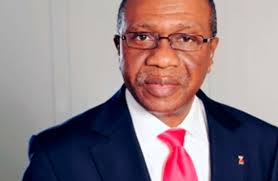Nigerian tthe naira ended at a record closing low of 189.20 against the dollar ahead of the first central bank monetary policy meeting of the year, dealers said on Tuesday.
Dealers said the currency was 1.1 percent down on the day, despite a central bank intervention to prop it up, owing to a lack of dollar liquidity and apprehension ahead of the meeting, Reuters reports.
TThe CBN had in Late November officially devalued the naira against the dollar at the end of the MPC meeting on Tuesday, moving the midpoint from N155 to a dollar to N168 to a dollar. It also announced the widening of the band around the midpoint by 200 basis point from + or – 3 per cent to + or -5 per cent and increased the MPR, the benchmark interest rate, by 100 basis points from 12 per cent to 13 per cent. Also, the committee raised private sector CRR, the amount of private sector deposit that banks must keep with the central bank and not lend out, by 500 basis points, from 15 per cent to 20 per cent. The currency devaluation means that the conversion rate between the naira and dollar has increased and according to experts, this will lead to an increase in price of goods and services, higher production cost and reduced earnings for companies. The lower currency value encourages exports and discourages imports, improving the country’s trade deficit and imbalances. However, the average citizen of a country with a recently devalued currency could suffer from higher prices of imported goods and overseas holiday costs.
LThe currency, which hitherto sold within the band of N150 to N160, has suffered significant depreciation as the country battles the challenges of sudden fall of oil prices, which is the main source of the country’s foreign exchange.
The fall in oil prices has affected overall financial system, with the country’s only bourse the Nigerian Stock Exchange convulsing badly. The losses encountered in the market is nearing the level seen in 2008/2009, when investors lost values counting several billions of dollar.














